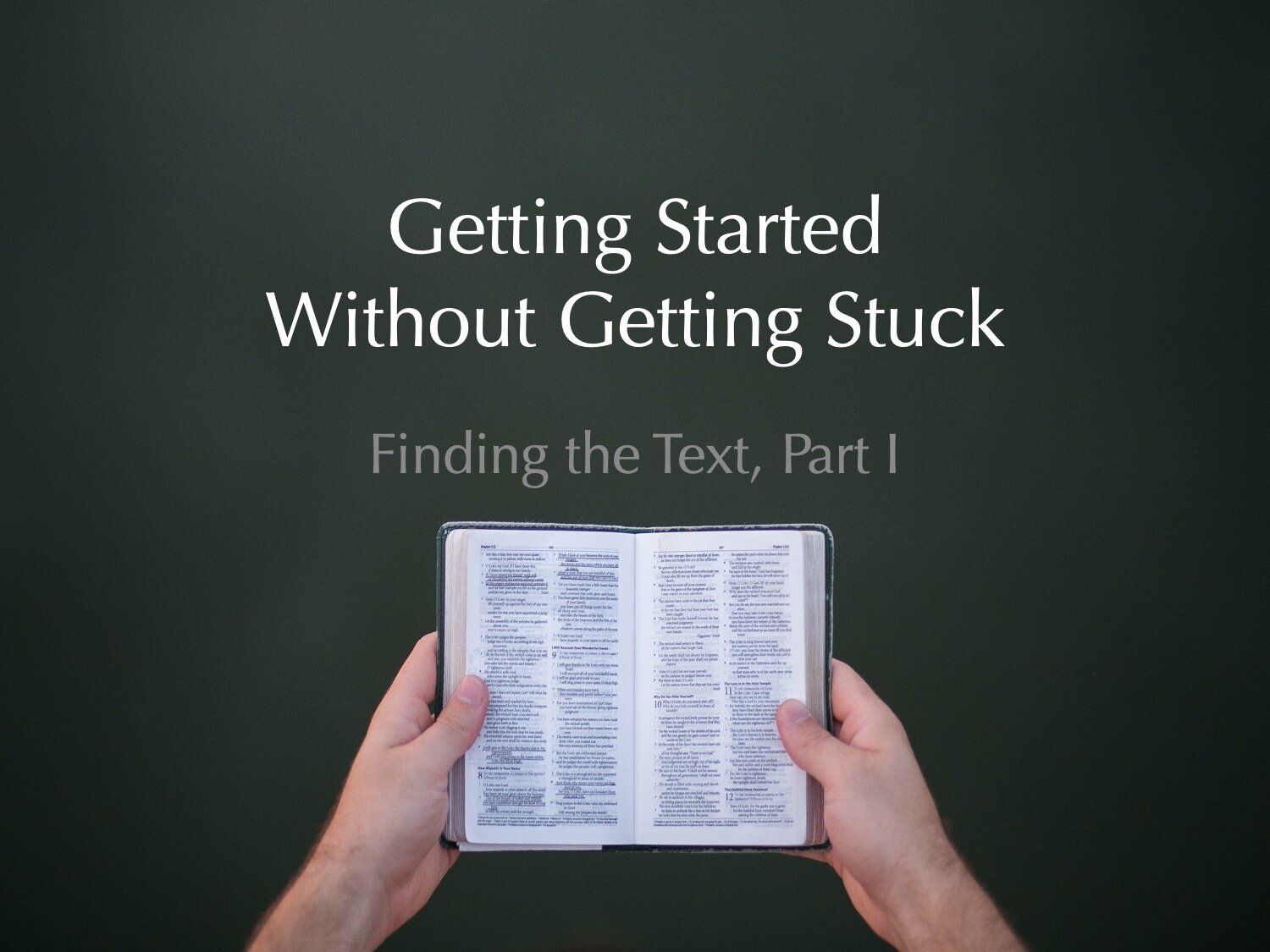Getting Started Without Getting Stuck
Help, I have to Preach! Where do I start?
Maybe your pastor, for a reason clear to him but a mystery to you, has asked you to preach. Or you are going on a mission trip, and every member of the team must be prepared to speak. Or you are the designated preacher for your family reunion. Or perhaps you are a new pastor, suddenly overwhelmed with the responsibility of preaching at least once each week.
Whatever the reason, you are faced with the daunting task of bringing a word from God to the people of God. Where do you begin?
The first step is to choose a sermon text from the Bible. It may seem simple, but it is the first place many beginning preachers get stuck. In this post, I want to offer some thoughts to keep you moving.
Why Choose a Sermon Text?
With so many texts from which to choose, you might be tempted to bypass this step. Don’t do it! Here are four reasons you should choose a text for your sermon:
Your hearers do not need a word from you, they need a word from God.
Not only should the word be from God, it should be shown to be from God.
God has spoken through the Scriptures — all the truth that we need, and more meaning than you could ever exhaust is found in the Bible.
You are not the authority in the sermon. God is the authority, speaking by his Spirit, through his Word as you faithfully proclaim it. Without a text, the authority for your sermon is shaky at best, and probably lost completely.
Why Choose Only One Text?
Your next temptation might be to pull out your concordance or your topical Bible and lead your hearers on a trek through multiple texts. This is another way of choosing not to choose. It’s not quite as dangerous as choosing no text at all, but there are several good reasons for settling on a single text:
You only have time for one text. There are not enough hours in your week to study multiple texts deeply. There are not enough minutes in the sermon to explain multiple texts adequately. If you choose to preach on many texts, you will only skim the surface of any of them.
If you preach multiple texts, you miss the opportunity to give your hearers a good example of how to study a passage of Scripture deeply.
The more texts you use, the more subjective your message tends to be. Many texts strung together are vulnerable to manipulation. You will tend towards proof-texting your ideas rather than explaining the ideas in the text. You can find yourself preaching your own mind, rather than the mind of God.
Using multiple texts lets you off the hook too easily. Wrestling with the meaning of a passage is hard work. It takes effort, thought, prayer, and listening to God. Multiple texts can give you an easy out with a difficult passage. In stead of staying long enough to reap the benefits of the hard work, you can just skip on to the next text.
How Long Is a Good Sermon Text?
There are almost unlimited possibilities for sermon texts. I’ve heard good sermons based on a single phrase or verse. I’ve heard others based on an entire epistle, or even on the entire Bible (not much different from a multi-text sermon!). As a rule of thumb for beginning preachers, however, I would recommend three guidelines for a good preaching text:
Short enough to be manageable in the time you have for preparation and delivery.
Long enough to provide a thorough foundation for your sermon.
A complete unit of thought. If you are using a story or a parable, use the entire episode. If it is an argument in an epistle, let the text be a major point within the argument. If it is a poem, preach the entire poem if possible, or at least use a major, self-contained stanza. The key is that the text should have its own central idea, which can then become the central idea of the sermon.
Finding the text for your sermon is important, but it need not paralyze you. If you have a strong sense of the Lord’s leading to a particular text, thank God and go for it! If not, don’t panic, and don’t freeze. Remember, all Scripture is inspired by God, and useful for his people. When the Word of God is explained by a messenger from God in the Spirit of God, God’s people are always blessed. Whatever text you choose, if you are faithful in your handling of it, God will use it.
In the next two posts in this series, I’ll give you some more pointers on the path to choosing a text, and the relationship between the biblical text and the needs of your hearers in the process.


